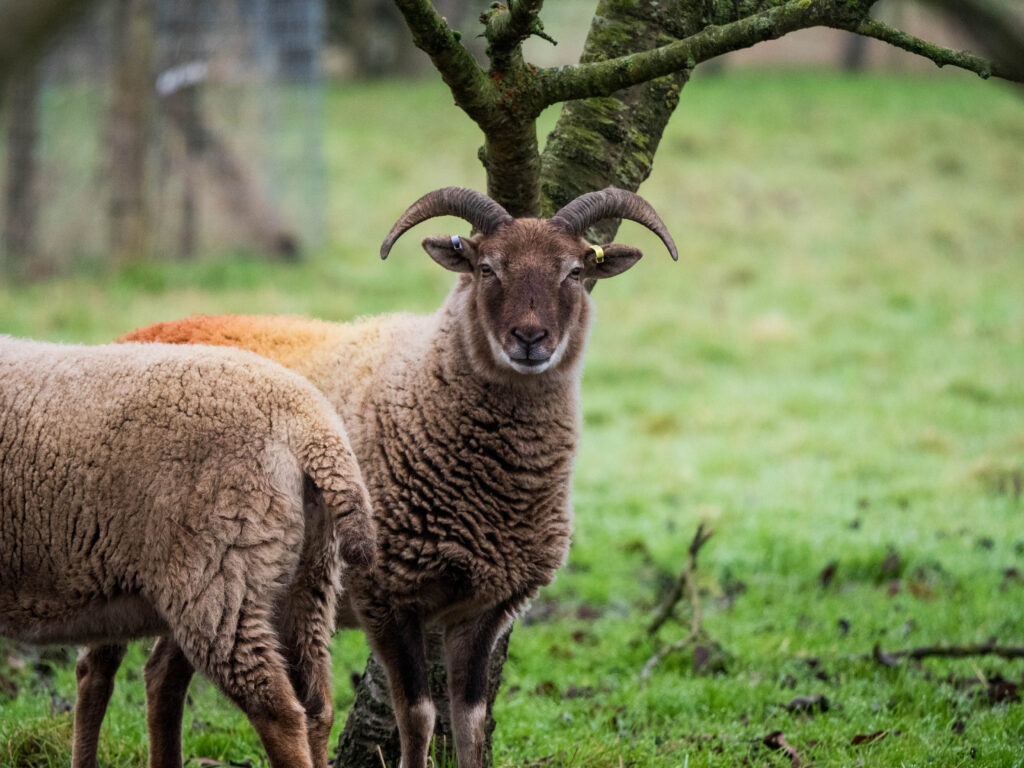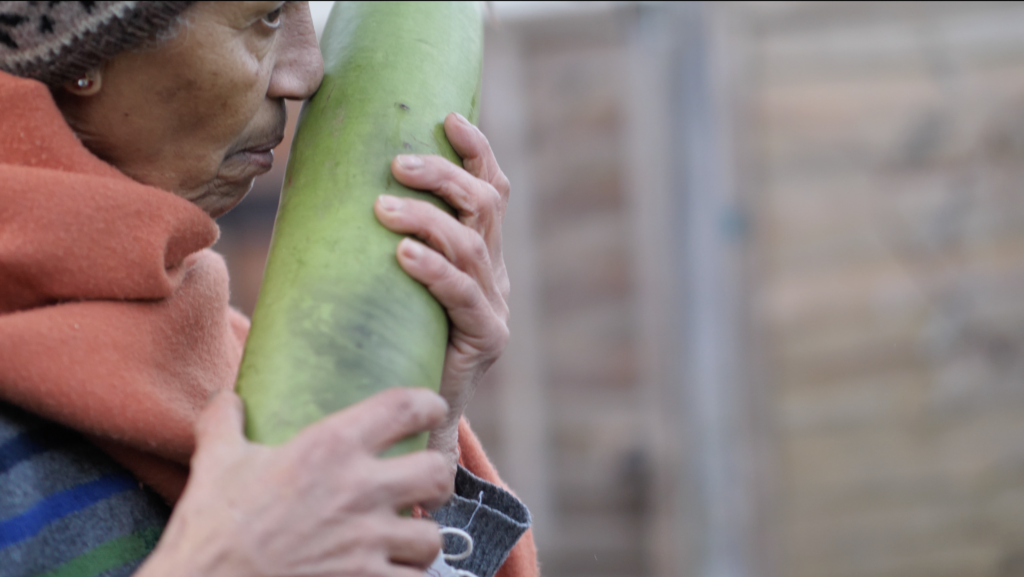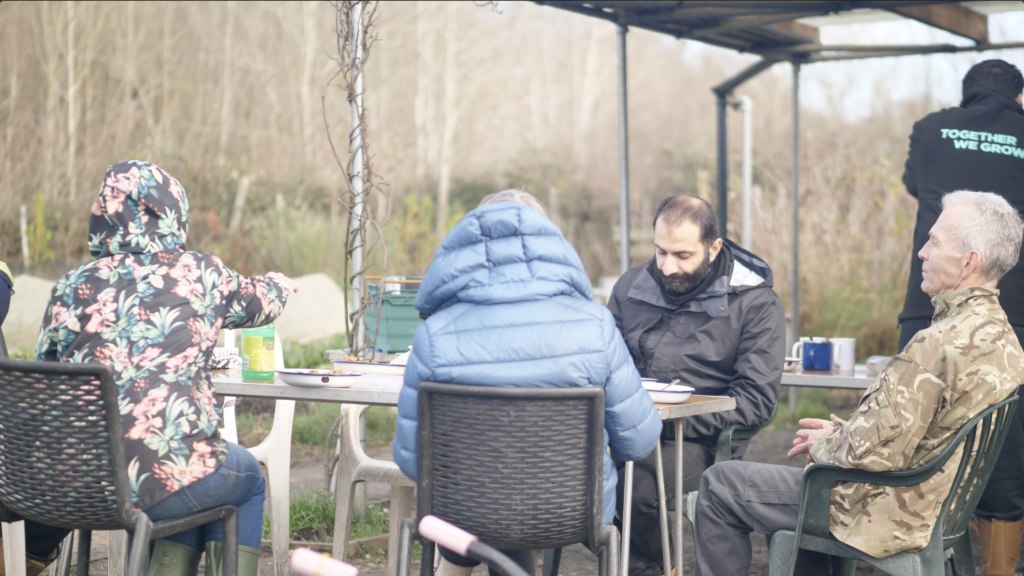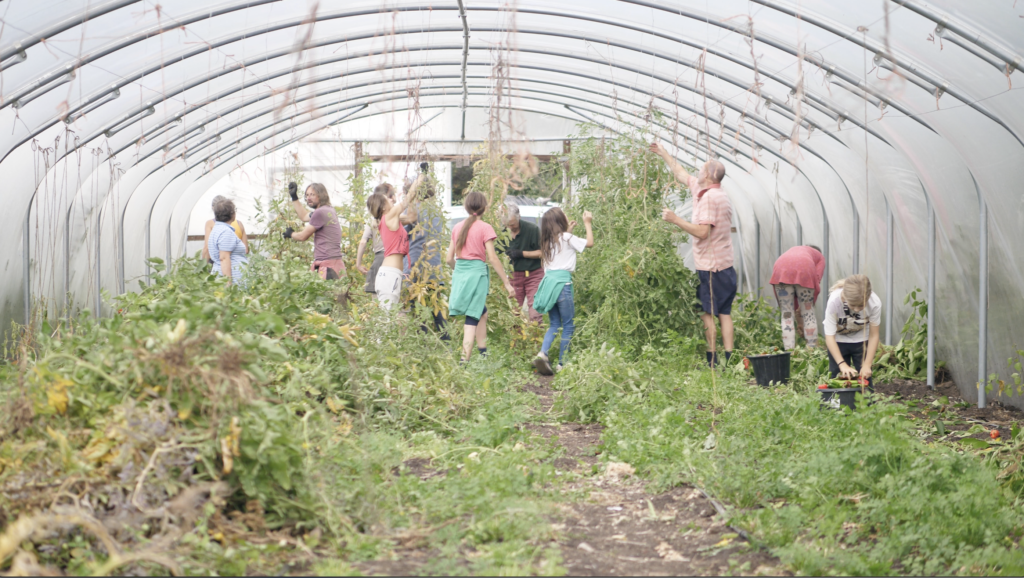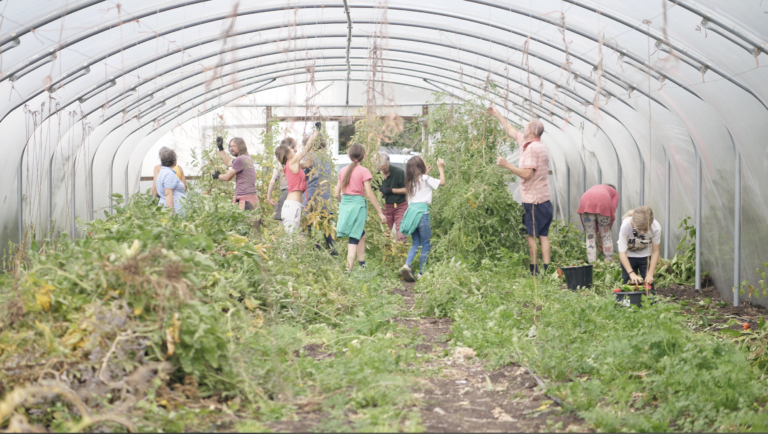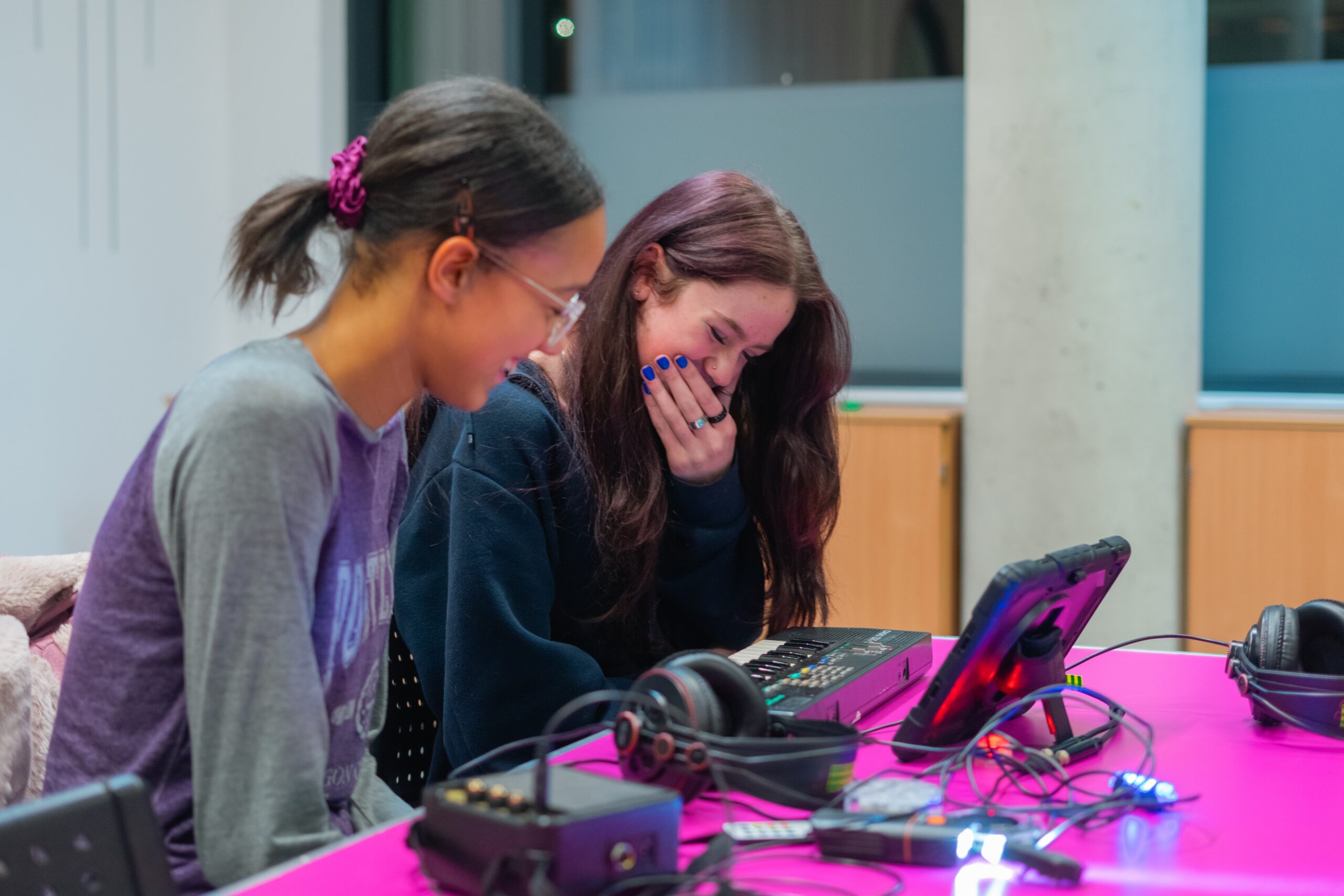Marley Karazimba reflects on the first few months of his new film documenting the people of Essex and their connection the land.
Since beginning my Extraordinary Essex Commission last year, I could not have imagined just how many inspiring land-based, food-focused growing projects are taking place across Essex. The process of filming for my new documentary has taken me on a tour of the county, meeting the people and communities of Essex that have a strong connection to the land.
At Bennison Farm in rural Colchester, I’ve spent time talking all things community-supported and regenerative agriculture with grower Danny Steele. Regenerative agriculture being an approach to farming that allows the land, soil, water, nutrients, and natural assets to regenerate themselves, as opposed to conventional approaches to farming that can deplete these natural resources.
In Aldham, I’ve met with Andrew Tann and Ben Lambert at Crapes Fruit Farm, which has been part of Andrew’s family for more than 100 years. Andrew manages the historic orchard whilst permaculture designer Ben applies a no-dig approach to growing vegetables for their weekly delivery round.
It has been a revelation for me to have been introduced to Trust Links; an independent charity for mental health, wellbeing and the environment which has several community garden sites across Essex. I’ve had the pleasure of joining two of their therapeutic gardening sessions in Braintree and Basildon, where I had the opportunity to speak to some of their members about the mental health benefits they experience from being involved in growing projects.
In Lawford, I visited Alison from Alison’s Organics, learning all about the biodynamic approach and her commitment to biodiversity. Alison’s smallholding is home to the rare breed Castlemilk Moorit sheep, as well as chickens who not only provide eggs but also help prepare and enhance the soil quality. Alison lives and grows on one of the original smallholdings in Lawford, which was established as the Foxash Land Settlement Association in 1936 – part of a government scheme that relocated unemployed workers to locations across England to begin new lives as market gardeners. This has led me to Essex Record Office, the county archive in Chelmsford where my research into the history of farming in Essex will add some important historical context to the final film.
I’ve also had the opportunity to interview Mehmet at the Together We Grow CIC plot in High Woods County Park, Colchester. Mehmet takes an innovative approach to his psychotherapy practice by connecting with his patients outside in nature, whilst working the land, as an alternative to a therapy room. Mehmet’s involvement is just one of many great things that Together We Grow CIC are doing, they also provide volunteer opportunities for refugees and asylum seekers, as well as weekly therapeutic gardening sessions for a number of different local community groups and schools. During my visit, lunch was cooked on site using freshly harvested parsnips & spinach – a real treat!
In Brightlingsea, I visited a community allotment project where I spent time with Vibha on her plot. Vibha grows several varieties and crops not typically grown in the UK – calling on her Indian heritage and a love for diversity. I was introduced to vegetables I have never seen growing in the UK before, as well as a sweet little soft fruit plant with the tastiest berries – I must contact Vibha again to remind me the name of that plant!
I’ve also joined the Bangladeshi Women’s Association for their weekly lunch club at Firstsite where they use produce from their own community allotment for their lunch club. Similarly, Patch café in Colchester grow some of the produce they use for their supper clubs, on their own allotment; I interviewed chef & co-owner Sid about the challenges of this approach.
Just outside of Colchester, the team at Stoney Meadows Farm are providing a great example of what can be achieved when a group of friends come together, contribute their time, energy, effort and finances to grow their own produce for themselves and their local community…I had never heard of electroculture until meeting with them; a centuries-old gardening technique that uses conductive metals to capture atmospheric energy and increase plant growth- more to come about all of that in the film.
The weather has stopped play on a couple of occasions, but filming dates have since been rescheduled for the coming months, including some coastal growing projects such as Lauriston Farm; a hundred-acre farm run by a workers cooperative along the Blackwater Estuary and the Othona Community on the edge of the Dengie Peninsula in Bradwell-on-Sea.
There are still filming dates available throughout January and February before I turn my attention to finishing the edit and prepare for screenings across the county from March onwards. If you or anyone you know would like to feature as part of the film or to be kept In the loop about upcoming film screenings, don’t hesitate to contact me via email: marleymindof@gmail.com
